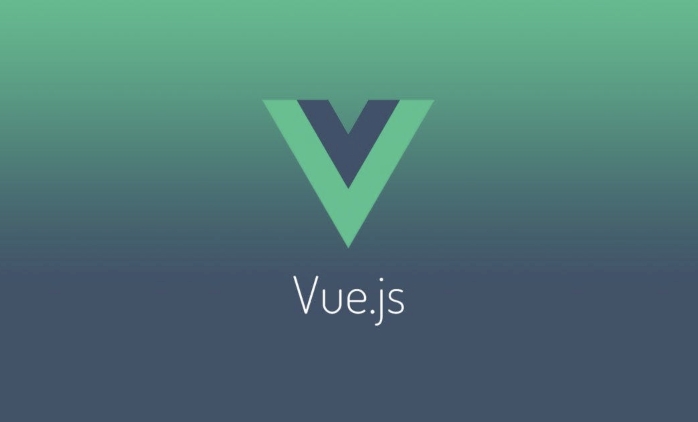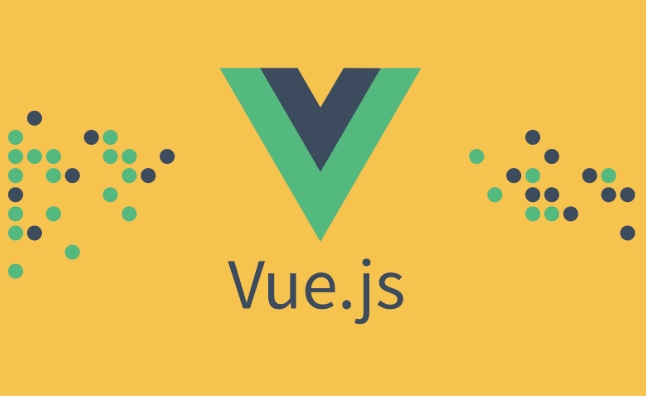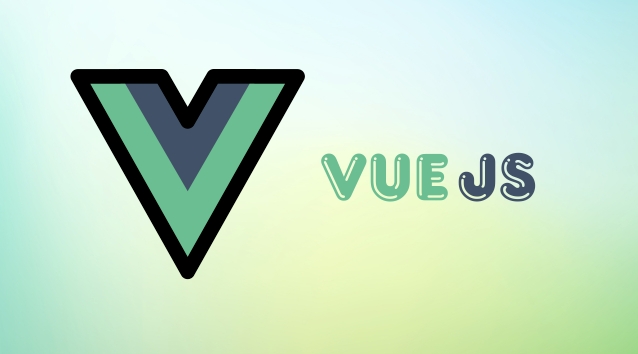How to handle errors in a Vue application?
Jul 26, 2025 am 07:57 AMUse Vue’s errorCaptured hook and app.config.errorHandler to catch component and global errors; 2. Handle async errors with try/catch in async methods and listen to unhandledrejection events; 3. Create error boundary components using errorCaptured to isolate and manage UI failures; 4. Integrate monitoring tools like Sentry to log and track errors in production; 5. Display user-friendly error messages with retry options to maintain a smooth user experience. Combining these strategies ensures errors are caught early, logged clearly, and handled gracefully without disrupting the application.

Handling errors in a Vue application effectively ensures a better user experience and helps with debugging during development. Here’s how to manage errors properly across different layers of a Vue app.

1. Use Vue’s Built-in Error Handling Hooks
Vue provides lifecycle hooks and global handlers to catch component-related errors.
errorCaptured Hook
This lifecycle hook can be used in component-level error handling. It catches errors from child components.

export default {
errorCaptured(err, instance, info) {
console.error('Error captured:', err, info);
// Return false to stop the error from propagating upward
return false;
}
}Note: Avoid side effects like modifying props or state in this hook. Use it mainly for logging.
app.config.errorHandler (Global Error Handler)
Set a global error handler during app initialization to catch unhandled errors in components, lifecycle hooks, and templates.

const app = createApp(App);
app.config.errorHandler = (err, instance, info) => {
console.error('Global error:', err, info);
// Send to error tracking service
reportErrorToService(err, info);
};This won’t catch errors in:
- Event handlers
- Asynchronous code (e.g.,
setTimeout, Promises) - Vue’s own internal rendering (in some edge cases)
2. Handle Asynchronous Errors (API Calls, Promises)
Vue doesn’t catch async errors automatically, so you need to handle them manually.
Use try/catch in async methods:
methods: {
async fetchData() {
try {
const response = await api.getData();
this.data = response.data;
} catch (error) {
console.error('API error:', error);
this.errorMessage = 'Failed to load data.';
}
}
}Handle uncaught promise rejections (fallback):
window.addEventListener('unhandledrejection', event => {
console.error('Unhandled promise rejection:', event.reason);
event.preventDefault();
});Tip: Integrate with tools like Sentry or LogRocket to log these automatically.
3. Use Error Boundaries (via Wrapper Components)
Vue doesn’t have native error boundaries like React, but you can simulate them using components with errorCaptured.
Example: Create a reusable error boundary component
<template>
<div v-if="hasError" class="error-fallback">
<p>Something went wrong. Please try again.</p>
<button @click="reset">Try Again</button>
</div>
<slot v-else />
</template>
<script>
export default {
data() {
return { hasError: false };
},
methods: {
reset() {
this.hasError = false;
}
},
errorCaptured() {
this.hasError = true;
return false;
}
}
</script>Use it like:
<ErrorBoundary> <ProblematicComponent /> </ErrorBoundary>
4. Log and Monitor Errors in Production
In production, silent errors hurt UX. Use error reporting tools.
Integrate with Sentry
Install Sentry SDK:
npm install @sentry/vue @sentry/tracing
Initialize in your app:
import * as Sentry from '@sentry/vue';
Sentry.init({
app,
dsn: 'YOUR_SENTRY_DSN',
integrations: [
new Sentry.BrowserTracing(),
],
tracesSampleRate: 1.0,
});Now all errors (including unhandled ones) are reported with context.
5. Handle User-Facing Errors Gracefully
Don’t just log—inform users.
- Show fallback UIs
- Provide retry options
- Avoid technical jargon
Example:
<div v-if="errorMessage" class="alert">
{{ errorMessage }}
<button @click="retry">Retry</button>
</div>Bottom line: Combine global handlers, try/catch for async code, error boundary patterns, and monitoring tools. It’s not about preventing all errors—it’s about managing them without crashing the experience.
Basically: catch early, log clearly, recover gracefully.
The above is the detailed content of How to handle errors in a Vue application?. For more information, please follow other related articles on the PHP Chinese website!

Hot AI Tools

Undress AI Tool
Undress images for free

Undresser.AI Undress
AI-powered app for creating realistic nude photos

AI Clothes Remover
Online AI tool for removing clothes from photos.

Clothoff.io
AI clothes remover

Video Face Swap
Swap faces in any video effortlessly with our completely free AI face swap tool!

Hot Article

Hot Tools

Notepad++7.3.1
Easy-to-use and free code editor

SublimeText3 Chinese version
Chinese version, very easy to use

Zend Studio 13.0.1
Powerful PHP integrated development environment

Dreamweaver CS6
Visual web development tools

SublimeText3 Mac version
God-level code editing software (SublimeText3)
 What is server side rendering SSR in Vue?
Jun 25, 2025 am 12:49 AM
What is server side rendering SSR in Vue?
Jun 25, 2025 am 12:49 AM
Server-siderendering(SSR)inVueimprovesperformanceandSEObygeneratingHTMLontheserver.1.TheserverrunsVueappcodeandgeneratesHTMLbasedonthecurrentroute.2.ThatHTMLissenttothebrowserimmediately.3.Vuehydratesthepage,attachingeventlistenerstomakeitinteractive
 How to implement transitions and animations in Vue?
Jun 24, 2025 pm 02:17 PM
How to implement transitions and animations in Vue?
Jun 24, 2025 pm 02:17 PM
ToaddtransitionsandanimationsinVue,usebuilt-incomponentslikeand,applyCSSclasses,leveragetransitionhooksforcontrol,andoptimizeperformance.1.WrapelementswithandapplyCSStransitionclasseslikev-enter-activeforbasicfadeorslideeffects.2.Useforanimatingdynam
 Handling exceptions and logging errors in a Laravel application
Jul 02, 2025 pm 03:24 PM
Handling exceptions and logging errors in a Laravel application
Jul 02, 2025 pm 03:24 PM
The core methods for handling exceptions and recording errors in Laravel applications include: 1. Use the App\Exceptions\Handler class to centrally manage unhandled exceptions, and record or notify exception information through the report() method, such as sending Slack notifications; 2. Use Monolog to configure the log system, set the log level and output method in config/logging.php, and enable error and above level logs in production environment. At the same time, detailed exception information can be manually recorded in report() in combination with the context; 3. Customize the render() method to return a unified JSON format error response, improving the collaboration efficiency of the front and back end of the API. These steps are
 How to build a component library with Vue?
Jul 10, 2025 pm 12:14 PM
How to build a component library with Vue?
Jul 10, 2025 pm 12:14 PM
Building a Vue component library requires designing the structure around the business scenario and following the complete process of development, testing and release. 1. The structural design should be classified according to functional modules, including basic components, layout components and business components; 2. Use SCSS or CSS variables to unify the theme and style; 3. Unify the naming specifications and introduce ESLint and Prettier to ensure the consistent code style; 4. Display the usage of components on the supporting document site; 5. Use Vite and other tools to package as NPM packages and configure rollupOptions; 6. Follow the semver specification to manage versions and changelogs when publishing.
 How to use PHP to develop a Q&A community platform Detailed explanation of PHP interactive community monetization model
Jul 23, 2025 pm 07:21 PM
How to use PHP to develop a Q&A community platform Detailed explanation of PHP interactive community monetization model
Jul 23, 2025 pm 07:21 PM
1. The first choice for the Laravel MySQL Vue/React combination in the PHP development question and answer community is the first choice for Laravel MySQL Vue/React combination, due to its maturity in the ecosystem and high development efficiency; 2. High performance requires dependence on cache (Redis), database optimization, CDN and asynchronous queues; 3. Security must be done with input filtering, CSRF protection, HTTPS, password encryption and permission control; 4. Money optional advertising, member subscription, rewards, commissions, knowledge payment and other models, the core is to match community tone and user needs.
 What are custom plugins in Vue?
Jun 26, 2025 am 12:37 AM
What are custom plugins in Vue?
Jun 26, 2025 am 12:37 AM
To create a Vue custom plug-in, follow the following steps: 1. Define the plug-in object containing the install method; 2. Extend Vue by adding global methods, instance methods, directives, mixing or registering components in install; 3. Export the plug-in for importing and use elsewhere; 4. Register the plug-in through Vue.use (YourPlugin) in the main application file. For example, you can create a plugin that adds the $formatCurrency method for all components, and set Vue.prototype.$formatCurrency in install. When using plug-ins, be careful to avoid excessive pollution of global namespace, reduce side effects, and ensure that each plug-in is
 Free entrance to Vue finished product resources website. Complete Vue finished product is permanently viewed online
Jul 23, 2025 pm 12:39 PM
Free entrance to Vue finished product resources website. Complete Vue finished product is permanently viewed online
Jul 23, 2025 pm 12:39 PM
This article has selected a series of top-level finished product resource websites for Vue developers and learners. Through these platforms, you can browse, learn, and even reuse massive high-quality Vue complete projects online for free, thereby quickly improving your development skills and project practice capabilities.
 How to develop AI intelligent form system with PHP PHP intelligent form design and analysis
Jul 25, 2025 pm 05:54 PM
How to develop AI intelligent form system with PHP PHP intelligent form design and analysis
Jul 25, 2025 pm 05:54 PM
When choosing a suitable PHP framework, you need to consider comprehensively according to project needs: Laravel is suitable for rapid development and provides EloquentORM and Blade template engines, which are convenient for database operation and dynamic form rendering; Symfony is more flexible and suitable for complex systems; CodeIgniter is lightweight and suitable for simple applications with high performance requirements. 2. To ensure the accuracy of AI models, we need to start with high-quality data training, reasonable selection of evaluation indicators (such as accuracy, recall, F1 value), regular performance evaluation and model tuning, and ensure code quality through unit testing and integration testing, while continuously monitoring the input data to prevent data drift. 3. Many measures are required to protect user privacy: encrypt and store sensitive data (such as AES






